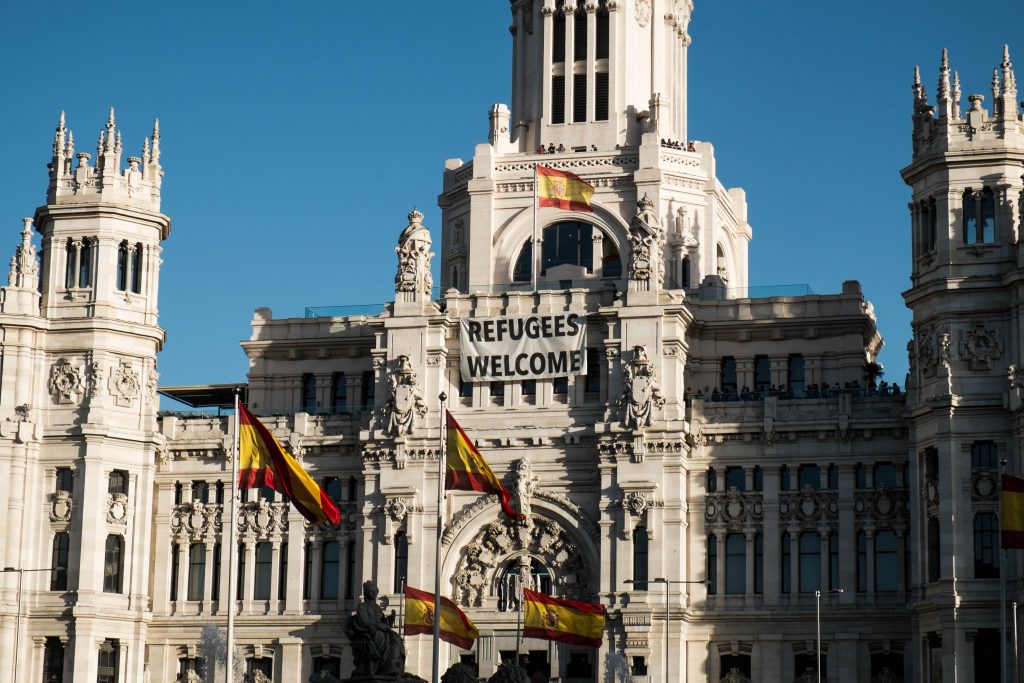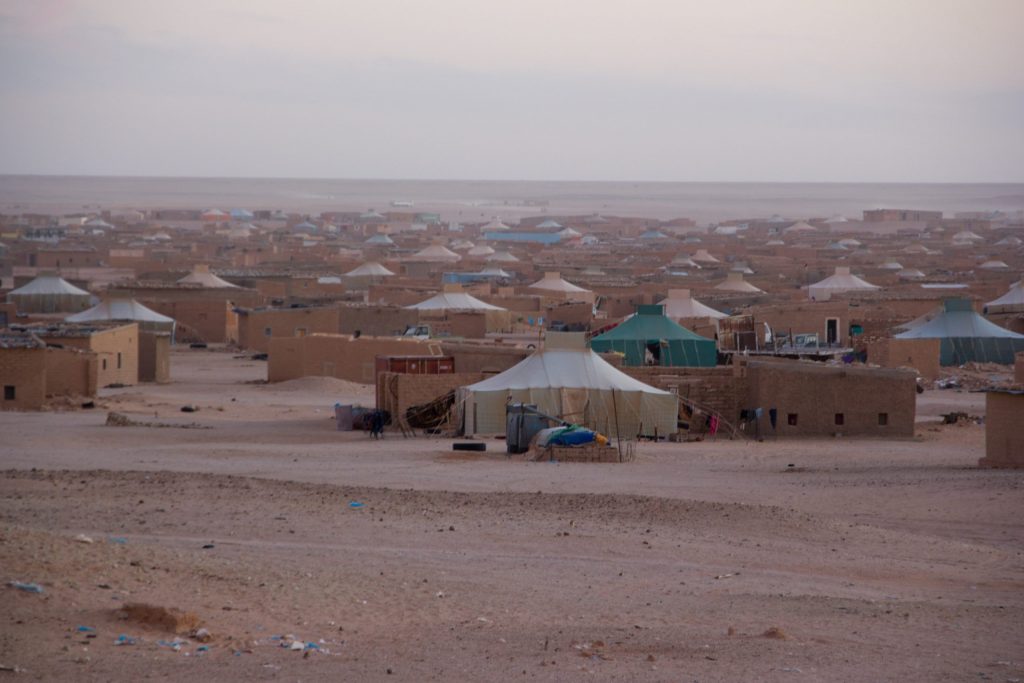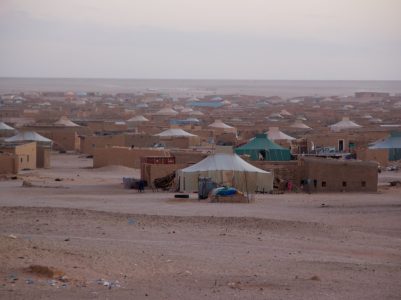Adapted from an interview with Dr. Elizabeth Ferris (Georgetown, the Brookings Institution). This is the second half of a two-part series delving deep into the refugee crisis and religion’s role in it. Read Part 1 here.

The Role of Religion and Belief
In some cases, religious differences and tensions have contributed to the conflicts that displace people. Unfortunately, there’s still persecution of people because of their religion, which forces people to flee. In most conflicts, religion is one of many factors contributing to violence. In places like South Sudan, for example, there may be a religious component, but there are also ethnic differences, and frankly, just a lot of personal greed that is driving the conflicts. I don’t think you can blame conflicts on religion across the board, although there are cases where religion plays an important role.
For most people who are displaced, religion is sometimes used as an explanation for what they have experienced. Many times I’ve talked with refugees who have said things like, “God is punishing us. We must have sinned and done something wrong.” They see it in religious terms. Sometimes it leads them to question their faith: “How could God let this happen to my daughter? I don’t believe in God anymore if these kinds of terrible atrocities are taking place.” Often they turn to religion for comfort and hope in the midst of adversity.
And even for people who work with refugees, sometimes there are questions about religion. Sometimes some of my secular, atheist, agnostic colleagues have come to me in the face of these tragedies and say, “Explain this to me. Is there a God that would allow the slaughter of Rwandans?” for example, during the genocide. Or when they saw horrific abuses against children, say through trafficking networks. Even though they don’t profess any particular religion, when things like this happen, people often begin to ask questions of a spiritual or religious nature in trying to make sense of some of these terrible things.
The Contributions of Faith-based Communities
On the positive side, everywhere in the world faith communities are on the front line when people are displaced. Whether it’s local mosques or Buddhist temples or Christian churches, people flee to faith-based places in search of sanctuary or protection. Sometimes, like in the Rwandan genocide, they flee to churches and then their churches are burned down, and there aren’t safe places at all. But there seems to be a natural impulse to seek out faith communities in times of stress. Usually, religious institutions are more respected than governmental authorities, and all faith traditions include calls to welcome strangers and minister to those in need. So, during Cyclone Nargis in Myanmar in 2008, Buddhist temples were filled with people who were searching for safety, for help. And they received it.
Religious organizations around the world have traditionally reached out to those in need, offering humanitarian aid, protection, shelter, clothing, medical care—whatever they can. Sometimes local religious communities are overwhelmed and it’s the big U.N. or international NGOs that take the lead, sometimes pushing small faith-based communities aside, in their efforts to provide relief. But I think the contributions of faith-based organizations is pervasive and constant. And frankly, it’s often not taken nearly seriously enough by the big humanitarian players.
Things are thankfully starting to change. In 2012, the U.N. High Commissioner for Refugees organized a dialogue with religious leaders. And they came away with a greater appreciation for the extensive faith networks in all regions. Faith-based organizations are linked to national, regional, and international structures. Local faith communities are rooted in their communities, they’re trusted, and they can be effective partners. Sometimes U.N. agencies work directly through faith-based organizations, providing funds for churches or mosques to implement specific programs.
I remember the very first humanitarian crisis I worked on in the mid-1980s: the famine in Ethiopia. And I remember standing with some Canadian church partners as we watched the delivery of grain from the Canadian government. It was massive—as far as you could see, there were trucks piled high with grain. In my mind, I was calculating it was something like dozens of football fields piled 20 feet high with grain. It was an impressive amount of grain that Canadians were sending to help people in need. And then the man standing next to me, who was a priest with the Ethiopian Orthodox Church, said this:
Who do you think’s going to deliver all that grain? We have soup kitchens and 40,000 parishes across Ethiopia to make sure that all that grain and food generally gets to the people who need it.
In the annals of contributions, the Canadian government, Canadian churches—their grain contribution was lauded. But the contribution of these 40,000 parishes—mostly women, I’ll point out—who were cooking up the food and making sure it got to people in need—that wasn’t acknowledged. So I think there needs to be much more appreciation for what faith-based organizations are doing. Of course, Lord knows they’re not perfect. Sometimes they’re politicized. Sometimes they make mistakes. Sometimes they’re well-meaning and make things worse. But I think we need to recognize their contributions and help them acquire the capacity to deliver the things that they can uniquely do.

An Issue Without Borders
Churches especially, but also Islamic organizations and other religions, have a membership that transcends borders. They have global connections. I worked for many years with the World Council of Churches, which was just wonderful, because you could link up the actions of individual churches or interfaith groups in very different countries with global networks—which could in turn bring those issues to global forums where you could get high-level political attention to solve crises or work out agreements allowing for the return of refugees. I think that ‘borderless’ aspect of religious institutions is a real asset that can and should be used.
By definition, people who cross an international border are an issue of international concern. We’ve seen over and over again that refugees are kind of like the canary in the coal mine. When refugees arrive, you think “Oh wow, something bad must be happening in that country,” and it may be the first danger signal. But if people can’t leave their country, there is less international awareness and less motivation to address the causes producing a refugee crisis. So seeing refugees is a warning sign—it’s a sign that we need to take action to stop whatever it is that’s provoking people to leave their country. Nobody wants to leave their country.
To become a refugee is not something that people take lightly. They grab their kids and whatever they can take with them, and they flee, hoping they’ll be back. I’ve done a lot of work with Syrian refugees in recent years, and every single person I’ve talked to has said something like this:
I had no idea it would last this long. I thought it would just be for a week or two until the violence calmed down and we could go back.
I didn’t see myself living in a refugee camp or under plastic bags for months or years.
Nobody thinks this is going to be permanent. So we need to do more to ensure that it isn’t permanent, that people aren’t eternally displaced and that they can go home. Or, if that isn’t possible, that they have means to establish a new life elsewhere.
Good Examples on the International Stage
There’s no perfect country when it comes to confronting the refugee crisis. But there are a lot of countries that have done some really good things. The government of Colombia, for example, has by far the world’s best policies on internally displaced persons. They have a whole system of assistance, protection, reparations, restitution of land, and it’s a very good, comprehensive system. They have problems implementing it, which is always the case, but they’ve certainly taken really important steps. You also see important steps in places like Ukraine, where they’ve had 1.5 million IDPs, and slowly, gradually developed policies to make their lives better. In Ukraine, unlike most places, particularly vulnerable groups include older people who have state pensions they can’t access because they’re living in the wrong part of the country. So the government has done some really nitty gritty to enable Ukrainian IDPs to access their pensions.
We owe a big debt to the countries that are hosting Syrian refugees—Turkey, Lebanon, and Jordan, which, to varying degrees, have allowed refugees to go to school, to work legally in more countries and to say. These are all really important issues. The countries in South America that are hosting almost 5 million Venezuelan refugees receive very little attention. But on the ground, you know, there are literally hundreds of groups that are providing assistance to Colombians in Chile or in Ecuador. Sometimes it’s direct aid like soup kitchens, which are needed. Sometimes it’s things like helping Venezuelan doctors get certified to practice in Peru, because every country has its own standards. This makes a huge difference for people who can earn a livelihood if they’re allowed to practice their trade. There are a lot of good things happening on a lot of fronts that we can learn from.
Religious Institutions as a Bridge
When you’re talking about either refugees or internally displaced people, you can find a lot of good things happening at the local level. In my courses on humanitarian crises, I usually ask students to come up with a hopeful story, because everything we’re talking about is so depressing, and it’s wonderful to see all these hundreds of examples of good, local action taking place that most of us never hear about.
Important things are also happening at the national level. I think shaping U.S. policy would have a tremendous effect worldwide, not just in the U.S. So actions to change governmental policy here will have a ripple effect around the world.
And then there’s the international level. I’ve done a lot of work with international policy to set the broad parameters—whether it’s the way these crises are funded, or who responds when, or different policy measures that prioritize people with disabilities, etc. For example, the U.S. has played a leadership role in raising the particular needs of displaced LGBTQ individuals.
Change is needed at different levels to improve the conditions for refugees and other displaced people. I think it’s a particularly interesting and important role for faith communities to draw the connections between those levels—between what’s happening in Nebraska, and in Washington, and in Geneva. And I think religious institutions are perfectly poised to do that because of their transnational nature.
Read Part 1 of the two-part series here.
– – –
Dr. Elizabeth Ferris is an ISIM Research Professor at Georgetown and a non-resident senior fellow in Foreign Policy at the Brookings Institution. Prior to joining Brookings in November 2006, Elizabeth spent 20 years working in the field of international humanitarian response, most recently in Geneva, Switzerland at the World Council of Churches. She has also served as Chair of the International Council of Voluntary Agencies (ICVA), as Research Director for the Life & Peace Institute in Uppsala, Sweden, and as Director of the Church World Service Immigration and Refugee Program in New York. She has been a professor at several U.S. universities and served as a Fulbright professor to the Universidad Autónoma de México in Mexico City. She has written or edited six books and many articles on humanitarian and human rights issues which have been published in both academic and policy journals. Her current research interests focus on the politics of humanitarian action and on the role of civil society in protecting displaced populations.
– – –
For more perspectives from religious, intellectual, and community leaders on the refugee crisis, watch this year’s G20 Interfaith Forum panel discussion on Refugees (below). You can also find an official policy brief on refugees and forced migration here.


